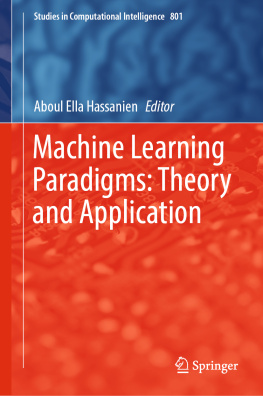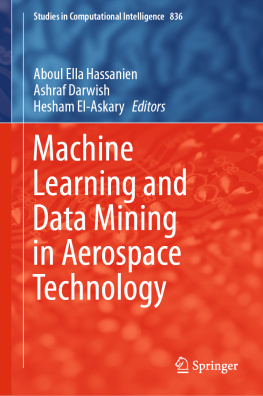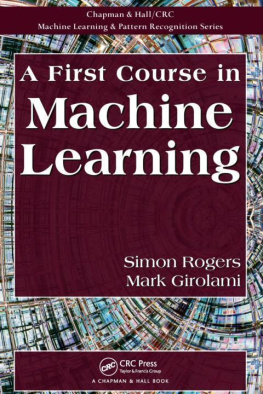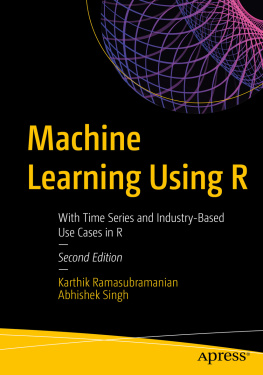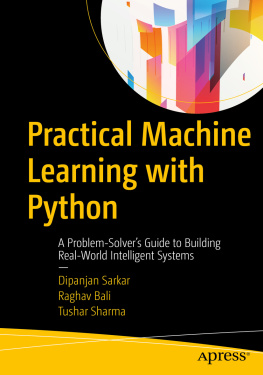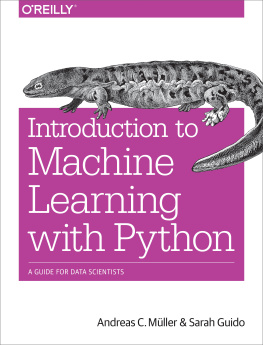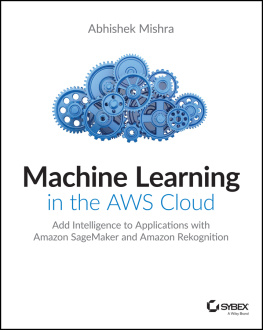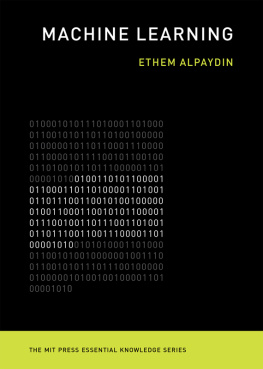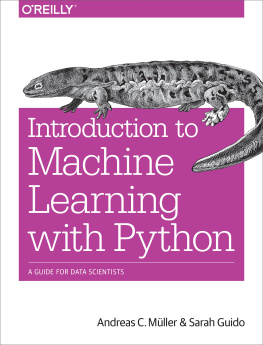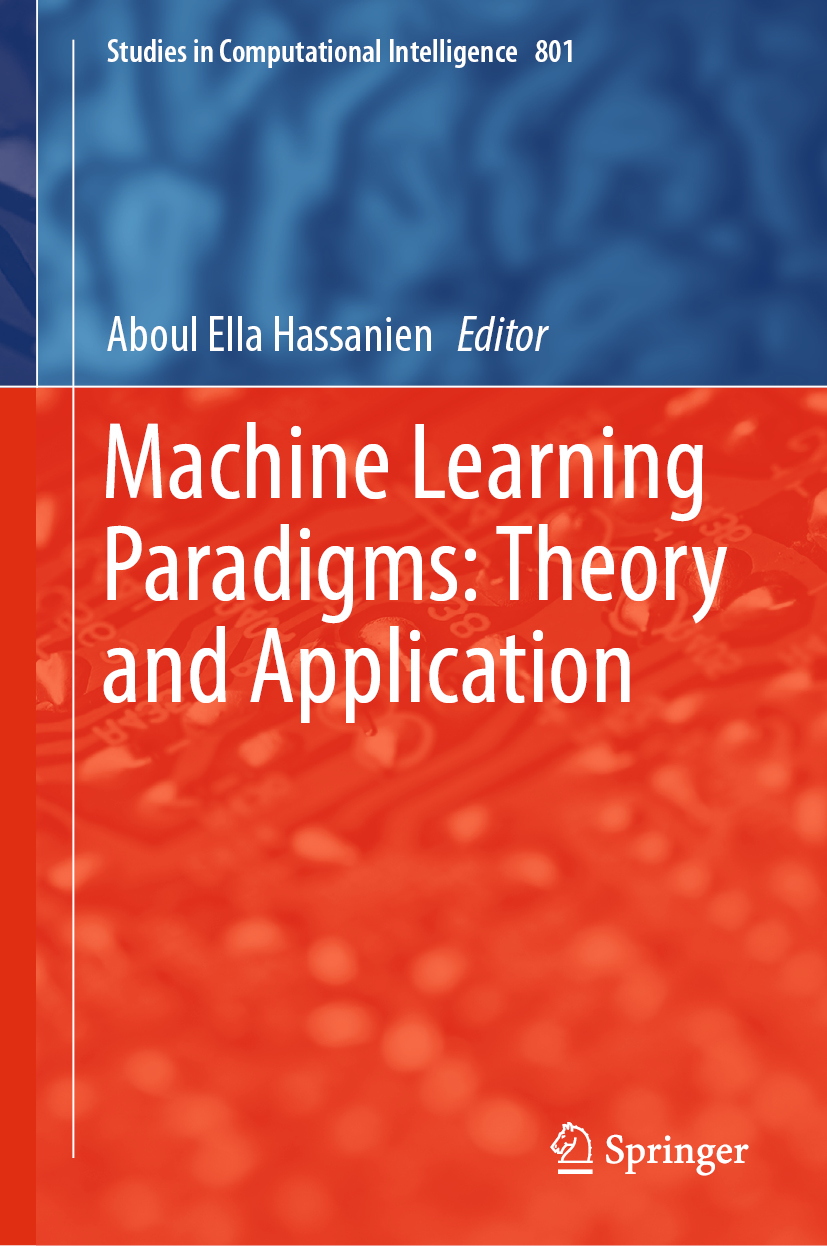Volume 801
Studies in Computational Intelligence
Series Editor
Janusz Kacprzyk
Polish Academy of Sciences, Warsaw, Poland
The series Studies in Computational Intelligence (SCI) publishes new developments and advances in the various areas of computational intelligencequickly and with a high quality. The intent is to cover the theory, applications, and design methods of computational intelligence, as embedded in the fields of engineering, computer science, physics and life sciences, as well as the methodologies behind them. The series contains monographs, lecture notes and edited volumes in computational intelligence spanning the areas of neural networks, connectionist systems, genetic algorithms, evolutionary computation, artificial intelligence, cellular automata, self-organizing systems, soft computing, fuzzy systems, and hybrid intelligent systems. Of particular value to both the contributors and the readership are the short publication timeframe and the world-wide distribution, which enable both wide and rapid dissemination of research output.
The books of this series are submitted to indexing to Web of Science, EI-Compendex, DBLP, SCOPUS, Google Scholar and Springerlink.
More information about this series at http://www.springer.com/series/7092
Editor
Aboul Ella Hassanien
Machine Learning Paradigms: Theory and Application
Editor
Aboul Ella Hassanien
Faculty of Computers and Information, Cairo University, Giza, Egypt
ISSN 1860-949X e-ISSN 1860-9503
Studies in Computational Intelligence
ISBN 978-3-030-02356-0 e-ISBN 978-3-030-02357-7
https://doi.org/10.1007/978-3-030-02357-7
Library of Congress Control Number: 2018944351
Springer Nature Switzerland AG 2019
This work is subject to copyright. All rights are reserved by the Publisher, whether the whole or part of the material is concerned, specifically the rights of translation, reprinting, reuse of illustrations, recitation, broadcasting, reproduction on microfilms or in any other physical way, and transmission or information storage and retrieval, electronic adaptation, computer software, or by similar or dissimilar methodology now known or hereafter developed.
The use of general descriptive names, registered names, trademarks, service marks, etc. in this publication does not imply, even in the absence of a specific statement, that such names are exempt from the relevant protective laws and regulations and therefore free for general use.
The publisher, the authors and the editors are safe to assume that the advice and information in this book are believed to be true and accurate at the date of publication. Neither the publisher nor the authors or the editors give a warranty, express or implied, with respect to the material contained herein or for any errors or omissions that may have been made. The publisher remains neutral with regard to jurisdictional claims in published maps and institutional affiliations.
This Springer imprint is published by the registered company Springer Nature Switzerland AG
The registered company address is: Gewerbestrasse 11, 6330 Cham, Switzerland
Preface
This edited volume comprises 22 chapters, including several overview chapters, which provide an up-to-date and state-of-the art research covering the theory and algorithms of machine learning and bio-inspiring optimization. Besides research articles and expository papers on theory and algorithms of machine learning and bio-inspiring optimization, papers on numerical experiments and real-world applications were also encouraged. The book is divided into three main parts.
Machine Learning in Feature Selection part contains three chapters that discuss different feature selection methods using different machine learning technologies such as Genetic Algorithm, Weighting Attributes and Decision Rules, and Greedy Selection of Attributes.
The part on Machine Learning in Classification and Ontology contains 10 chapters. It discusses the application of machine learning techniques in classification in different areas like Remote Sensing, Fault Diagnosis, Intelligent Ontology-Based Solution for Energy Management, Personalized Learning Experience Using Reinforcement Learning, and Online Sentiment Analysis.
Bio-inspiring Optimization and Applications is the third part of the book. It contains nine chapters discussing the application of bio-inspiring optimization techniques in Task Scheduling, Parameters Optimization, Global Optimization, and Global Sequence Alignment Problem.
We are very much grateful to the authors of this volume and the reviewers for their great effort by reviewing and providing useful feedback to the authors. The editors would like to express thanks to Dr. Thomas Ditzinger (Springer Engineering Inhouse Editor, Studies in Computational Intelligence Series), Prof. Janusz Kacprzyk (Editor-in-Chief, Springer Studies in Computational Intelligence Series), and all Editorial Assistant, Springer Verlag, Heidelberg for the editorial assistance and excellent collaboration to produce this important scientific work. We hope that the reader will share our joy and will find the volume useful.
Aboul Ella Hassanien
Giza, Egypt
Contents
Part I Machine Learning in Feature Selection
Rania Saidi , Waad Bouaguel and Nadia Essoussi
Urszula Staczyk
Grzegorz Baron
Part II Machine Learning in Classification and Ontology
Noureldin Laban , Bassam Abdellatif , Hala M. Ebeid , Howida A. Shedeed and Mohamed F. Tolba
Barry Fitzgerald , Conor Ryan and Joe Sullivan
Nagendra Vara Prasad Kuraku , Yigang He and Murad Ali
Djamel Saba , Fatima Zohra Laallam , Houssem Eddine Degha , Brahim Berbaoui and Rachid Maouedj
Doaa Shawky and Ashraf Badawi
Doaa Mohey El-Din , Mohamed Hamed N. Taha and Nour Eldeen M. Khalifa
Meryem Talha , Siham Boulaknadel and Driss Aboutajdine
Randa Benkhelifa , Nasria Bouhyaoui and Fatima Zohra Laallam
Ali Ahmed , Abdelhameed Ibrahim and Sherif Hussein
Roheet Bhatnagar
Part III Bio-inspiring Optimization and Applications
Marwa Gamal , Rawya Rizk , Hani Mahdi and Basem Elhady
Gehad Ismail Sayed , Mona Soliman and Aboul Ella Hassanien
Ali Khater Mohamed , Ali Wagdy Mohamed , Ehab Zaki Elfeky and Mohamed Saleh
Alaa Tharwat and Aboul Ella Hassanien
Mohamed Issa , Aboul Ella Hassanien and Ibrahim Ziedan
Rabie A. Ramadan and Ahmed B. Altamimi
Mohamed Issa , Ahmed Abd Elbaset , Aboul Ella Hassanien and Ibrahim Ziedan
Ali Khater Mohamed and Ali Wagdy Mohamed
Gehad Ismail Sayed and Aboul Ella Hassanien
Hybrid Feature Selection Method Based on the Genetic Algorithm and Pearson Correlation Coefficient

